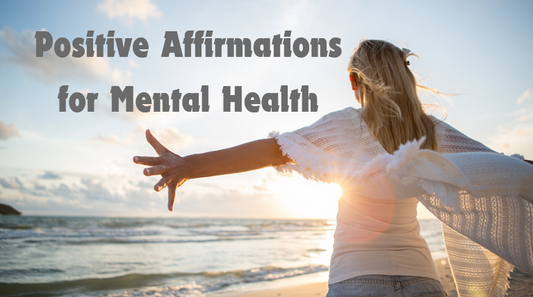Exercise is good for your mental health and well-being. It's one of the best things you can do for yourself, and it doesn't have to be hard or time-consuming. In fact, some studies have shown that as little as two weeks of exercise can improve symptoms associated with depression, anxiety disorders, bipolar disorder and schizophrenia. A growing body of evidence suggests that regular exercise may also lower your risk of developing major depressive disorder (MDD).

Exercise Releases Endorphins
Endorphins are natural painkillers that are released during exercise and other activities, like sex and eating chocolate. Endorphins can also help with depression, anxiety and stress.
Exercise Helps You Sleep Better
In a study published in the journal Sleep, researchers found that people who exercised at least three times per week had an easier time falling asleep and staying asleep than those who did not exercise. The researchers also discovered that when people exercise regularly, they're less likely to suffer from insomnia or other sleep disorders like restless leg syndrome (RLS). The more often you work out, the greater impact it has on your quality of rest so if this is something that interests you, consider finding ways to incorporate physical activity into your daily routine!
Exercise Can Help You Manage Symptoms Of Depression And Anxiety
When you exercise, your body releases endorphins that make you feel good. This can help reduce symptoms of depression and anxiety.
Exercise can also help manage stress, which is another factor that contributes to mental health issues like depression and anxiety. When we're stressed out, our bodies produce cortisol (the stress hormone). This increases our risk for developing chronic diseases like Type 2 diabetes or heart disease and it also ages us prematurely! So if you want to live a longer life with fewer health problems down the road, make sure that physical activity is part of your daily routine!
You may know about the connection between sleep deprivation and poor mental health but did you know exercise can actually improve sleep quality? Exercise improves muscle tone throughout the body, which helps regulate blood pressure levels so they don't fluctuate as much throughout the day/night cycle; this leads to better overall circulation, which allows oxygenated blood flow into all areas where we need it most including those parts responsible for keeping us awake while asleep at night.
Exercise Can Lower The Risk Of Developing Major Depressive Disorder (MDD)
- The more you exercise, the lower your risk.
- Exercising is a good way to reduce stress and anxiety.
- Exercising helps you sleep better, which in turn helps with managing symptoms of depression and anxiety.
Schizophrenia is a mental disorder characterized by abnormal social behavior and failure to recognize what is real. Exercise can help people with schizophrenia by reducing the risk of developing cardiovascular disease, reducing symptoms of depression, and helping them stay physically active.
The More You Exercise, The More Benefits You Reap
- The more you exercise, the better you feel.
- The more you exercise, the more benefits you get.
- That's because physical activity helps release endorphins in your brain and body that make you feel good! In addition to that benefit alone (which is enough reason to get up off your couch), there are plenty of others that come with regular workouts.
Exercising Is Good For Your Body, Mind And Soul
Exercise is good for your body, mind and soul. It can help you sleep better, manage symptoms of depression and anxiety, lower the risk of developing major depressive disorder (MDD), improve self-esteem and boost motivation.
Exercise also helps manage stress by releasing endorphins that make us feel happy. In fact, research shows that exercise can be as effective as antidepressant medications when it comes to treating mild depression or helping people overcome seasonal affective disorder (SAD).
Exercising even just three times per week has been shown to reduce symptoms associated with MDD by 30%.
Conclusion
We hope that this article has convinced you that exercise is the best medicine for mental health. Not only does it help with existing symptoms, but it can also prevent them from happening in the first place! If you're feeling anxious or depressed, try going for a short walk or jog around your neighborhood. You might be surprised at how much better you feel afterwards!













